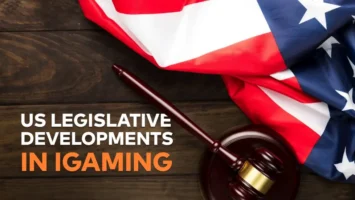Paraguay gambling regulation reform opens doors for growth and competition

The Paraguay gambling regulation reform is shaking up the industry landscape, marking a defining moment in Latin America’s gaming sector. With the recent passage of Law No 7348/2025, the country sets into motion the unraveling of its historic gambling monopoly, establishing a robust framework for private operators and championing regulatory clarity, player protection, and fresh economic opportunity. In this analysis, I break down what these changes mean for stakeholders, what drove the need for reform, and how the ripple effects could shape Paraguay’s future in the iGaming sphere.
The end of the gambling monopoly and the emergence of competition
Paraguay’s previous regulatory landscape, defined by Law No 1016/1997, made gambling a state-controlled enterprise, limiting the involvement of private operators to a restrictive public tender process. The new regulatory overhaul redefines this dynamic by opening up the market to private entities—both local and international—wishing to offer games of chance, on and offline.
This legislative update is more than just a regulatory footnote; it’s a decisive move to dismantle the entrenched monopoly. As emphasized by Conajzar President Carlos Liseras, the changes create a transparent, efficient, and competitive environment, paving the way for investment and innovation. Now, operators don’t have to hope for infrequent tenders—they can actively participate in a modernized and open gambling market.
Strengthened institutions and regulatory clarity
Central to the Paraguay gambling regulation reform is the formal empowerment of the National Gaming Commission (Conajzar). As a decentralized body now functioning under the National Directorate of Tax Revenue (DNIT), Conajzar wields expanded authority to authorize games, issue regulations across all administrative levels, and—crucially—enforce compliance throughout the sector.
The partnership with DNIT is especially significant. Not only does this add an extra layer of scrutiny, but DNIT’s direct involvement means processes like licensing, bidding, and oversight will be conducted with heightened accountability. Any steps taken without DNIT’s approval will be rendered legally ineffective, ensuring regulatory procedures are robust and decisions cannot be easily circumvented.
Tax revenues and economic impact on the horizon
The financial potential of the reform is already a focal point of discussion. In 2024, Paraguay’s gambling sector contributed a record PYG175.8 billion (about $21.9 million) to the state. With the removal of monopoly constraints and the enhanced logistical and infrastructural backing from DNIT and Conajzar, President Liseras projects that this sum could double or even far exceed previous estimates. The rationale is straightforward: broader competition leads to higher compliance, curbs tax evasion, and attracts new investments—all of which amplify public revenue streams.
Operator requirements and responsible gaming measures
The new regulatory model isn’t just about boosting numbers—it’s also about safeguarding interests. Companies bidding for licenses must meet strict criteria: relevant experience in the field, sound financial backing, and a clean legal record in Paraguay and overseas. Technical compliance is just as vital, with electronic gaming machines and computer systems subject to rigorous Conajzar certification, overseen by accredited inspection entities.
Location restrictions add another safeguard, with gambling establishments required to be at least 200 metres away from schools and educational institutions. This move aims to shield minors from exposure to gambling environments and aligns with broader responsible gaming objectives.
Why global and regional operators are taking notice
Paraguay’s strategic advantages extend beyond its regulatory overhaul. As Liseras points out, the nation boasts one of the region’s lowest tax burdens—a compelling draw for private companies looking for stability and profit potential in new markets. Furthermore, Paraguay has positioned itself as an attractive destination for both regional players and international tourism, making the gambling sector’s expansion a potentially lucrative endeavor.
Additionally, the legal certainty provided by the reform offers reassurances for both national and foreign investment. This increased security, coupled with a well-defined regulatory environment, gives operators the confidence needed to develop new business strategies and long-term plans.
Conajzar’s evolving role and market oversight
Regulatory modernization means that Conajzar’s powers are no longer ambiguous. The body is now crystal clear in its ability to:
- authorize the operation of all forms of games of chance,
- issue timely and appropriate regulations at the national, departmental, and municipal levels,
- approve innovative game types and sanction rule-breakers.
Conajzar also maintains permanent dialogue with both established operators and new entrants, building a collaborative regulatory environment that values transparency and compliance.
Collaboration extends beyond borders
A noteworthy outcome of the reform is the strengthening of interinstitutional and international partnerships. Agreements have already been signed not just with domestic bodies to optimize operator controls, but also with counterparts abroad—expanding the network of regulatory cooperation and intelligence sharing. This global outlook is tailored to optimize operations and more effectively tackle cross-border illegal gambling and related challenges.
Player protection as the guiding principle
While economic benefits typically dominate reform discussions, the driver behind the Paraguay gambling regulation reform is fundamentally rooted in player protection, particularly that of minors. By raising compliance standards, imposing distance requirements from schools, and clamping down on illegal operators, Paraguay positions itself alongside progressive markets that view responsible gambling as a societal obligation, not merely an industry talking point.
Looking ahead for Paraguay’s gaming future
The transformative regulatory reform in Paraguay isn’t simply a new chapter for its gaming industry—it’s a blueprint for a modern market that balances growth and ethical responsibility. While challenges remain—such as ensuring ongoing enforcement, maintaining transparency in licensing, and adapting to new game formats—the foundational groundwork is stronger and more investor-friendly than ever before.
In the coming years, eyes will be on Paraguay to see whether its reforms deliver on their ambitious promises: tackling illegal gambling, fostering vibrant competition, and channeling new revenues into the state. For now, one thing is certain—the Paraguay gambling regulation reform is a milestone with wide-reaching implications for regulators, operators, and players alike, heralding a new age of opportunity in the region’s digital entertainment landscape.



















